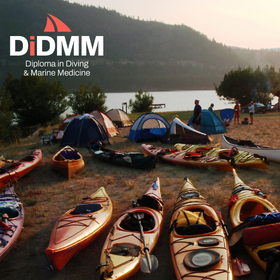2023 Medicine at Sea Pre-Conference (DiDMM Candidates Only)

Join us for the WMS Medicine at Sea Pre-Conference in Spokane, WA Saturday, July 15 - Monday, July 20. The three-day pre-conference will focus on Solar Injuries, Emergencies at Sea and Health Maintenance at Sea. Medical professionals will earn 18.25 AMA PRA Category 1 Credits™. This conference is designed to partially fulfill the Marine Medicine requirement of the Diploma in Diving and Marine Medicine. Candidates choosing to attend the DiDMM preconference will be required to attend the main conference. This pre-conference also includes the swiftwater rescue workshop which will satisfy the additional watercraft certification.
Course Description
Candidates may choose to attend one of two conferences: MedSail in the BVIs or a DiDMM “Medicine at Sea” preconference offered in conjunction with the WMS Summer Conferences. Attendance at pre-conference workshops and main conference lectures will be required.
*You must be a current DiDMM Candidate and active member of the WMS with either a Standard or Premium membership. Join or Upgrade your membership.
Insurance and Cancellation/Refund Policy
All participants are required to carry evacuation and medical insurance coverage (we suggest Global Rescue) as well as trip interruption/cancellation insurance (we suggest IMG through Global Rescue). Cancellation prior to 60 days before the session begins will result in a 50% refund. No refund if cancelling within 60 days.
Please note, this is the registration page only. For detailed information such as lodging, faculty and credit, click the button below.
More Information